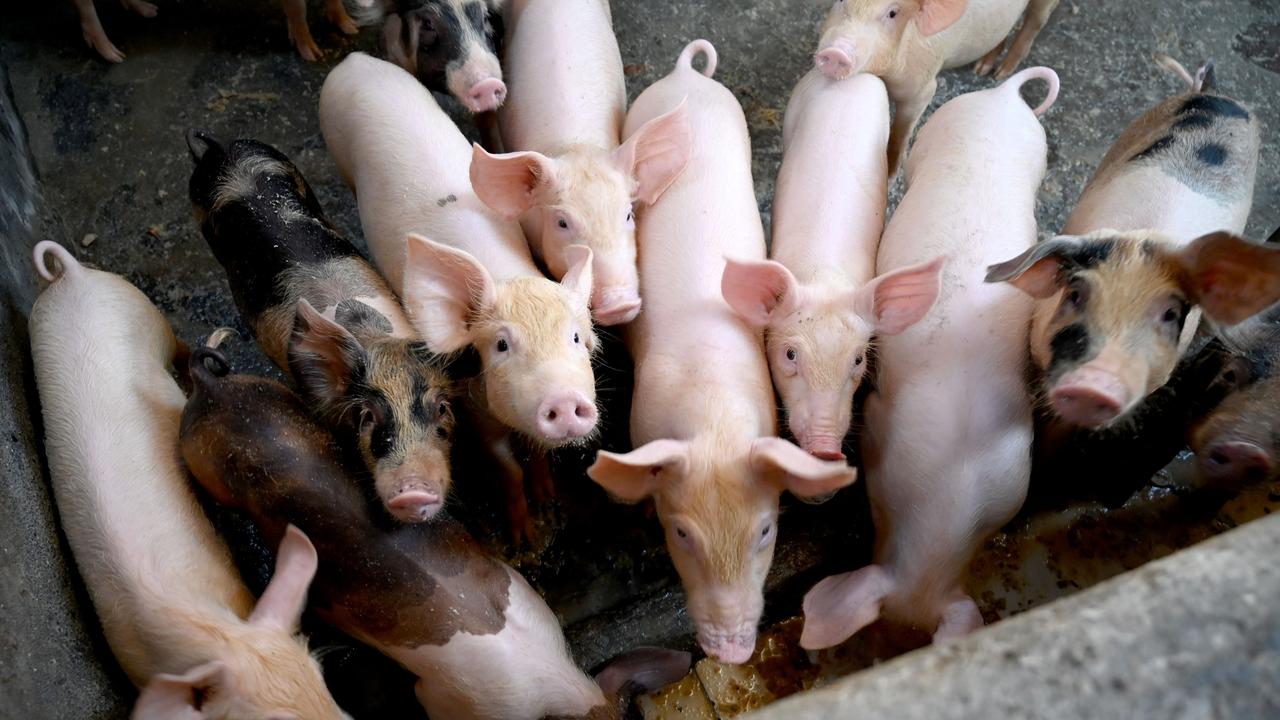Traveller to Taiwan fined $9k over pork lunch box
A traveller has been slapped with a $9000 fine and deported back home after sniffer dogs discovered their roasted chicken and pork combo lunch box.

A traveller has been fined NT$200,000 (AU$9,369) for a breach of Taiwan’s biosecurity laws after a sniffer dog discovered their pork and roast chicken combo lunch box.
The offender was an Indonesian national who arrived in Taipei from Hong Kong on April 30.
The Taiwanese Animal and Plant Health Inspection Agency boasted of the find on social media and later told local media a quarantine dog sniffed out the meal.
All pork products from African swine fever-infected areas are also banned.
Taiwan imposes a fine of NT$200,000 on first-time offenders who bring pork products from countries affected by African swine fever (ASF) to the island following an outbreak in China in 2018, but subsequent quarantine breaches have been increased to NT$1 million (AU$46,737).

Since then, outbreaks have been recorded in China, Mongolia, Vietnam, Cambodia, North Korea, the Lao People’s Democratic Republic, Myanmar, The Philippines, South Korea, Timor-Leste, Indonesia, Papua New Guinea, India, Malaysia, Bhutan, Thailand, Nepal, Singapore, and Bangladesh.
Taiwan is one of the few Asian countries that has not yet been affected by the disease.
The traveller was reportedly unable to pay the fine and was deported.
The World Organisation for Animal Health warns the disease is “a highly contagious viral disease of domestic and wild pigs, whose mortality rate can reach 100 per cent.”
They emphasise that “it is not a danger to human health, but it has devastating effects on pig populations and the farming economy.”

The organisation also points out that “the virus is highly resistant in the environment, meaning that it can survive on clothes, boots, wheels, and other materials. It can also survive in various pork products, such as ham, sausages, or bacon.”
“Therefore, human behaviours can play an important role in spreading this pig disease across borders if adequate measures are not taken.”
Australia, which has remained free from African Swine Fever (ASF), imposes fines of up to $6,260 on travellers who knowingly fail to declare high-risk goods such as pork and other meat products or provide false or misleading information.
According to CSIRO, ASF is considered the “worst livestock pandemic in history.”
In late 2023, Dr David Williams, an expert in ASFV at our Australian Centre for Disease Preparedness, hypothesised what an Australian outbreak would look like.
“For Australia to continue trading, we must be able to provide evidence that we remain free from the virus,” he said.

“If there were an outbreak of ASFV here, there would likely be an immediate stop to pork exports. We would implement measures to control the outbreak with the aim of eradicating the virus.
“To re-establish trading rights, we must again prove we are free of the disease.”
Dr Williams said promising ASF vaccines had been recently developed and marketed abroad but they have limitations, including the fact that they can only target one strain.
“These vaccines contain one or more gene deletions to weaken the virus and are known as modified live virus vaccines,” he said.
“Another disadvantage is that modified live virus vaccines have inherent safety issues because they may revert to a disease-causing form under some circumstances.
“Furthermore, the manufacturing process is complex, as is the handling and distribution of the vaccine.
“And these vaccines cannot be used in sows, or in pigs with underlying infections or illnesses because of possible side effects.”





